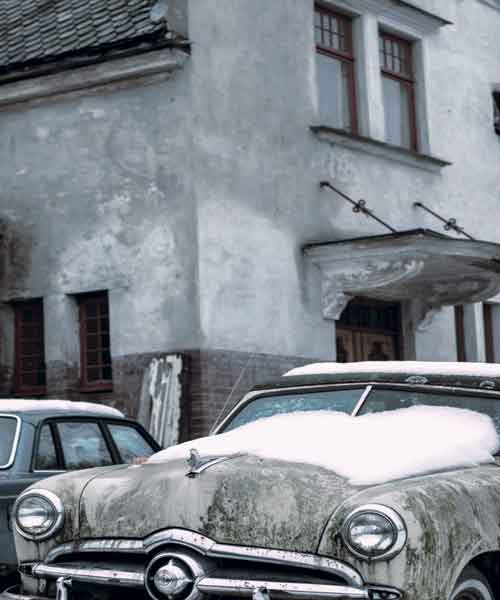‘There cannot be a crisis next week. My schedule is already full.’ So said former US diplomat and politician Henry Kissinger (according to The New York Times Magazine on 1st June 1969). Most of our readers will have had the same thought – perhaps on multiple occasions – but, as veterans of business crises all know: the GC simply has to make time.
The bigger the corporation, the more likely the crisis, the greater the variety of forms it might take and channels it might reach. And when readers peer at errant banking practices, enslaved workers, angry regulators or rogue employees through the paparazzi lens (with schadenfreude or sympathy), what they don’t see is the general counsel busy behind the scenes with the mop and bucket.
There’s no hard and fast rule as to who takes the lead in a crisis, of course. The clean-up team will depend on the nature of the emergency and company protocols, not to mention the judgement of the CEO. But usually, says veteran general counsel Chris Aujard, ‘at some point, no matter where the crisis enters the organisation, the GC gets involved.’
The emotional toll
Aujard identifies the psychological stages that many executives go through when catastrophe strikes: ‘They tend to go down the route of denial: “This can’t be happening, you’ve got it wrong, everyone’s got it wrong”. They might go through the process of grudging acceptance: “Well, ok, maybe there is something in it.” And quickly there is the deflating: “Oh god, we’re done for.”’ Alistair Asher, general counsel of the recently beleaguered Co-operative Group (a group of UK businesses with operations in the food, banking, insurance, travel, pharmaceutical, funeral care, legal services and electrical sectors), likens the feeling to a 1970s UK TV sitcom catchphrase: ‘It’s the old Dad’s Army thing: “Don’t Panic!”’ Joking aside, Asher identifies the key to coping with any disaster – keeping a clear head. And this is where lawyers can come in handy, accustomed as they are to professional conflict, and armed with an analytical, proportionate approach.
There are times, however, when nothing can prepare you for the emotional and professional toll that coping with a business crisis can exact at the executive level, especially when close colleagues fall. ‘When you’ve been through a lot, you’ve put your personal life on hold, you get sleep deprived, you work like hell, and then you get to a moment when it affects someone so personally that they leave, it’s very difficult. You can’t prepare for that, actually. Life experience is the only thing that prepares you for that,’ says Asher.
In contrast, at other times business leaders might fail to appreciate the dire straits they are in. Aujard recalls a time a while back when he was forced to make the dimensions of a regulatory issue crystal clear to the oblivious executive team. ‘C-suite teams aren’t necessarily that skilled at understanding whether the tiger is about to pounce. There’s a skill that general counsel typically have, which is to turn around to the C-suite and say, “look, this is not something that you should push to one side and deal with tomorrow. This is today’s issue and it’s pressingly urgent – and by the way, it could cost some of you your jobs.”’ Trained to sniff out downsides, in the initial stages the general counsel can also function as both translator and conductor – setting out and shaping the assessment of the crisis.
Naturally, some crises can’t be anticipated in this way, and hit with all the unexpected force of a meteorite strike. Alistair Asher knows all about that. After weathering a banking crisis following a £1.5 bn capital shortfall at The Co-operative Bank, and then a governance crisis after a stinging review by Sir Christopher Kelly, the business was hit by revelations that the former chairman had been taking drugs. ‘At first we thought it must be a hoax; sadly it wasn’t,’ he says. ‘That is almost impossible to prepare for.’
The blueprint
There are some preparations that GCs can make for a stormy day, however – even one that comes out of the blue. Any organisation should have a crisis response process, and the general counsel can (and is increasingly expected to) play a key role in crafting this. Obviously the degree of formality of the plan will vary from organisation to organisation according to the size, complexity and jurisdictional spread of the business. Some corporates even have a bronze, silver and gold-style system, with a strict notification and allocation of responsibility chain depending on the value of the issue at hand, and the amount of reputational damage that might occur.
Nevertheless, Chris Aujard cautions that a crisis procedure need not be overly complicated, especially since written protocols are very often ignored on day one of an emergency. ‘Regardless of the training that has been given, people default back to saying, “who is the most important person that I need to get involved? The CEO, maybe the finance director, the head of risk, maybe the GC – I’ll phone them all up at once!”’ Not that this necessarily matters to the outcome of a crisis, he says. Ultimately for Aujard, speedy establishment of the crisis governance structure and clear allocation of responsibility – whichever roles are involved – are critical to maintaining a clear, strategic response.
In addition, training staff and sensitising them to potential issues is the most fundamental groundwork that can be done, rather than slavishly following a written protocol on every occasion. Preparing the key players for a crisis means getting everyone together for what Aujard calls ‘a little bit of thinking time’, or taking time to assemble the core players to talk over what would happen if trouble hit. A cool and calm discussion in the absence of looming disaster can pay dividends because it forces those executives to think ahead of time, and may yield surprising and useful insights. But at its heart, ‘the essence of a crisis response should be simple and intuitive,’ Aujard says, ‘and as with any strategic plan, the value is in the thinking and not in the written plan itself.’
Top tips to survive a crisis situation
- Build good relationships with key internal stakeholders before a crisis hits.
- Talk through how a real crisis would be handled with the senior team.
- Make sure the practical details are in place. For example, ensure that you have relevant contact numbers (home and mobile) programmed into your mobile phone for the various partners of the law and accountancy firms that you might use. Chris Aujard recalls a situation that arose on the first day of his holiday: ‘I was at home, trying to build a dry wall and the crisis hit! Luckily I had most of the relevant numbers with me, but if I hadn’t, I would have been stuffed.’
- Take time to make sure that the front office staff know what their roles are in the first few hours of a crisis. For example, in the case of a dawn raid, ensure that reception staff have a clear sense of what to do: that they know who to contact, and how to diffuse the situation. This includes being as polite as possible, and trying to calm people down by offering teas and coffees and so on. Often such visitors have been up since very early in the morning, assembled off-site, and their adrenaline is pumping.
- When the immediate crisis has blown over, be aware of remaining obligations to stakeholders such as investors, accountants and regulators. What are the disclosure obligations? Often at the centre of a spider web of functions with competing priorities, the GC should keep these factors in mind, in case no one else is doing so. ‘The general counsel should be thinking about all these other stakeholders,’ says Aujard. ‘It’s not a legal job, it’s just a product of bring a generalist.’
Putting different disciplinary heads together (legal, risk, finance, IT, HR, PR and communications) when the company is not in crisis mode is crucial, and is the only really effective provision that companies can make to fend off the bolt from the blue, says Alistair Asher. Only then can you move into formation as a tight unit at short notice and handle the crisis effectively. A company is the sum of its parts and understanding the different perspectives of the various decision-making functions is vital to avoiding dissent in the ranks.
The battle for hearts and minds
This can be particularly important if a crisis has reached the public arena, where speed of response can be the difference between controlling a potentially damaging story, and letting it spread like a forest fire across the corporation’s reputation. Ewan Robertson is a specialist in crisis communications at London-based public relations consultancy Citigate Dewe Rogerson. He explains that social media has completely changed the game, because the usual checks and balances that apply to journalists are irrelevant to the amateur Facebook or Twitter commentator, so that even unsubstantiated allegations can take on a life of their own. This in turn puts pressure on traditional journalists who race to get content online quickly, with resultant factual inaccuracies. ‘We had an incident just this week where the wrong company was named in a major incident,’ he says. Without a rapid rebuttal, fiction can quickly become fact in the public mind.
But a high-speed (and potentially ill-considered) response is anathema to the measured and thoughtful brain of the in-house counsel. Still, Chris Aujard counsels against disregarding the communications perspective and describes a positive ‘creative tension’ between the legal and PR teams. ‘I like working with the PR guys, because they come up with a different view, and the evidence is on their side. You can prevent your share price sliding by being seen to make a quick response. Where the creative tension comes in is by responding quickly, but not responding in a way which is going to foreclose any other options in the future. Sounding brilliant, but promising nothing.
Problems might arise from the tone of communications rather than the substance, and over Aujard’s career, he has learnt the difference between the shareholder, regulator or court perception of a crisis, and that of the public. Nowadays people expect companies to take responsibility for what happens on their watch, even if liability is far from clear-cut. ‘Something that is a good, legally and analytically correct answer can be scoffed at. Your answer could be along the lines of, “this isn’t our concern because we make it clear that all our subcontractors carry responsibility for their own acts”. That fundamentally misses the point if somebody’s dead,’ he points out.
Of course, the GC will be mapping the stakeholder environment and taking the views of a whole range of viewpoints – those of shareholders, clients, suppliers, regulators, as well as the general public – necessitating a management plan for each affected group. Not to mention the internal stakeholders. It’s important to take a holistic view of the situation – and that’s where the GC can add value, says Aujard, thanks to their rounded view of an organisation which someone in an operational silo might not possess. But being even-handed applies to the media response too, he stresses. ‘You can’t send stuff out saying, “it’s all our fault, terribly sorry, we’ll pay you any compensation you ask for!”’
PR specialist Ewan Robertson recalls working with a major UK cosmetic surgery provider during a scandal involving defective PIP breast implants. The company was under pressure to pay for breast re-augmentation for affected patients, despite the products having been licensed for use; the PR team worked closely with the legal team to work out what the company could offer. Says Robertson: ‘It was an interesting example of trying to understand what’s feasible from a legal perspective, what’s feasible from an operational perspective but also what’s palatable from a communications perspective externally.’
Because integrating perspectives cuts both ways. The comms team must face the company as well as the press, and understand the legal, financial and business ramifications to effectively pitch the situation. And general counsel should not underestimate the sheer amount of time that dealing with the media can soak up. It comes back to contingency planning, says Robertson. From the PR point of view, that runs the gamut from establishing a prior relationship with a crisis comms specialist, anticipating potential crises, to stress-testing responses, and should include strong social media guidelines, to ensure a straightforward contractual position in the event that HR needs to become involved. ‘It’s not about telling employees what they can and can’t do on social media,’ he says, perhaps remembering a recent case where an unguarded CFO posted an off-colour joke on his Facebook page where the company name was visible. ‘It’s saying what they can and can’t do in relation to the company on social media.’ Prepared statements for every conceivable eventuality (signed off by the legal team in advance) can also make life easier. ‘It’s then a very quick process just to update names, dates and so on, tweak them very slightly and let them out the door to the journalists so you can either shut down a crisis or respond appropriately,’ says Robertson.
Band of brothers
In the event of an emergency, a strong internal network is all an organisation has to fall back on, and the GC, along with each function leader, must know the key internal stakeholders (including PR) individually to effectively burst into action. ‘To have a well-integrated, well-drilled team that knows each other well personally,’ says Alistair Asher, ‘you’ve got to know others’ strengths and weaknesses – and sometimes you have to cover for other people. In the first year or so [of the crisis at The Co-operative Group] all of us in the executive team had to play out of position on several occasions.’
Echoing Robertson’s belief in the importance of stress-testing, Asher advocates treating ‘known knowns’ like a fire alarm and rehearsing foreseeable crisis situations – which has an additional benefit: ‘If you take a potential situation and you run a drill, that’s actually a very good way of bonding everybody into the team you’re going to need if something happens.’
There is never going to be a good time for a crisis, but with some planning and a strong team of well-briefed and networked key players, the company’s ‘war room’ need not be a combative place – even in the heat of the battle.


